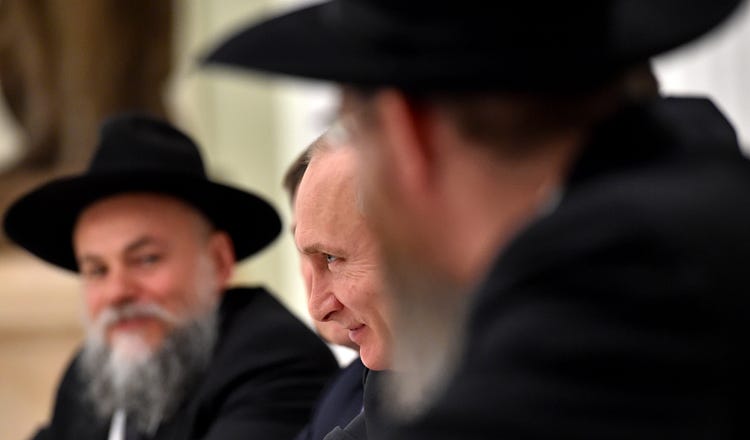A New Iron Curtain Descends on Russia’s Jews

Vladimir Putin in a meeting with the Federation of Jewish Communities in Russia. . (Kirill Kudryavtsev via Getty Images)
Putin was supposed to be the Good Tsar. Instead he has closed the Jewish Agency. And now tens of thousands of Jews fear being trapped in Russia.
272
I first met Avital Chizhik-Goldschmidt in 2013 at a Shabbat dinner. It was easy to stay in touch: She was prolific and hers was a byline I did not miss. Five years later, when I was at The New York Times, I commissioned her to write this very powerful, very personal story about her husband, an Orthodox rabbi, and the white supremacists who tried to stea…
Continue Reading The Free Press
To support our journalism, and unlock all of our investigative stories and provocative commentary about the world as it actually is, subscribe below.
$8.33/month
Billed as $100 yearly
$10/month
Billed as $10 monthly
Already have an account?
Sign In

